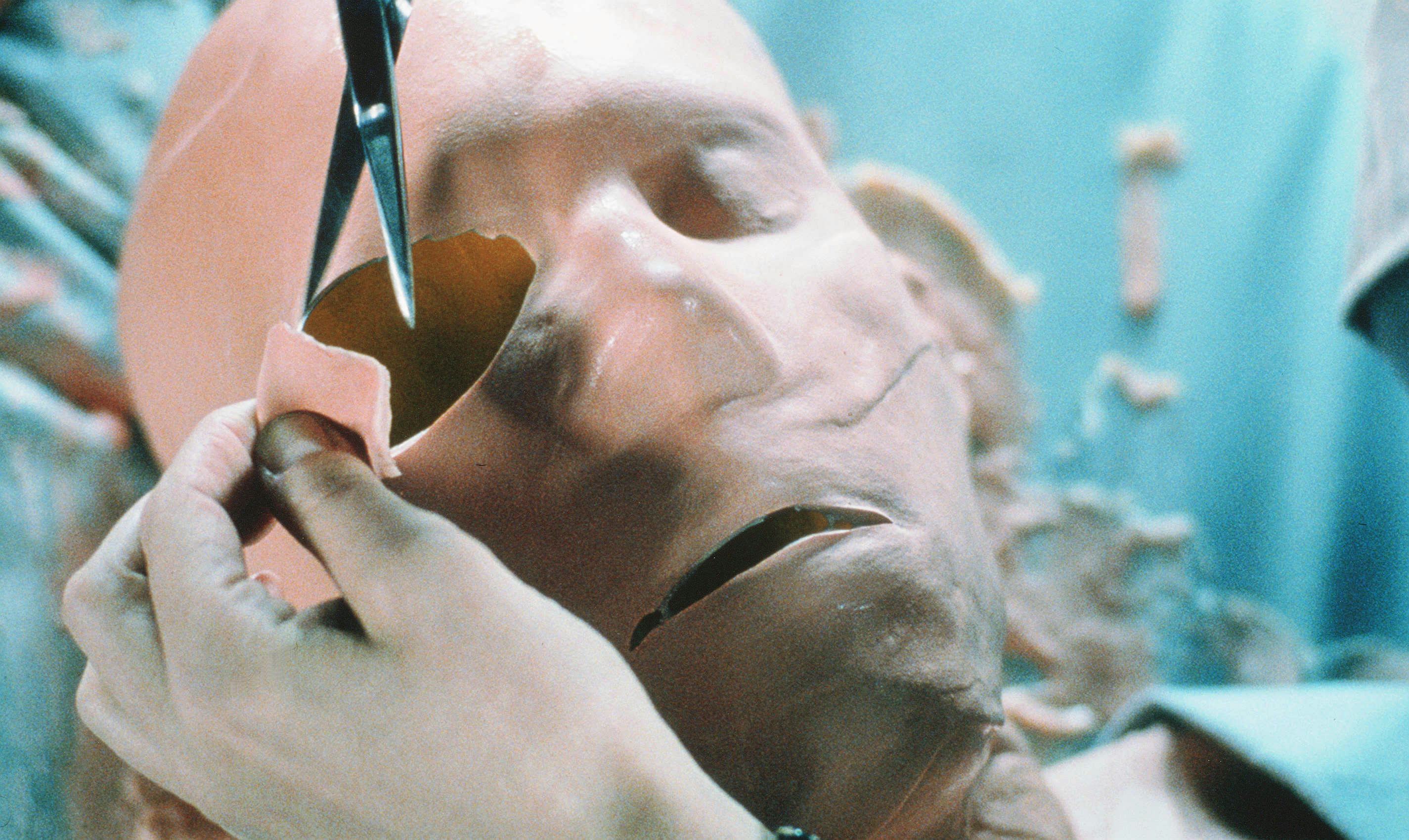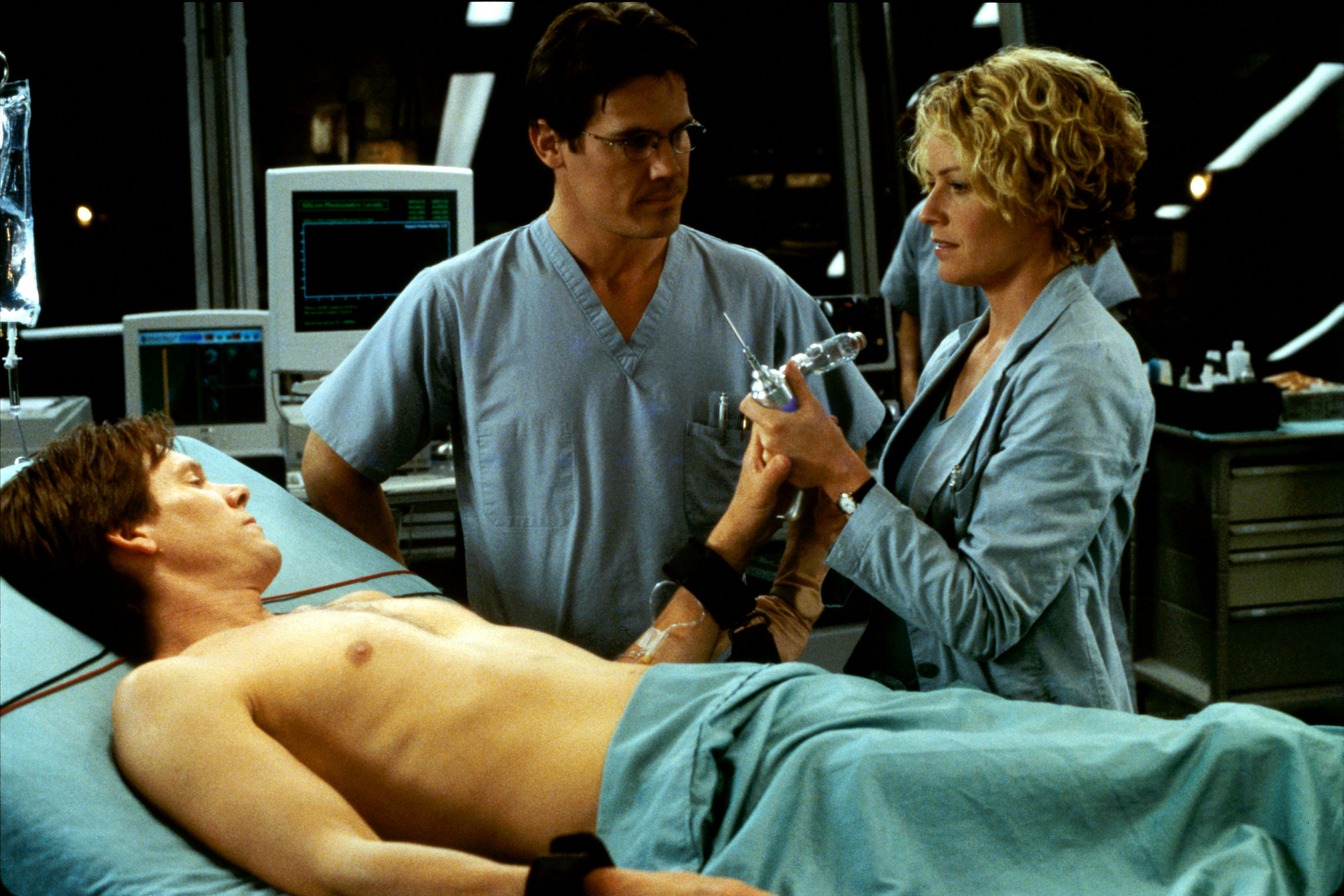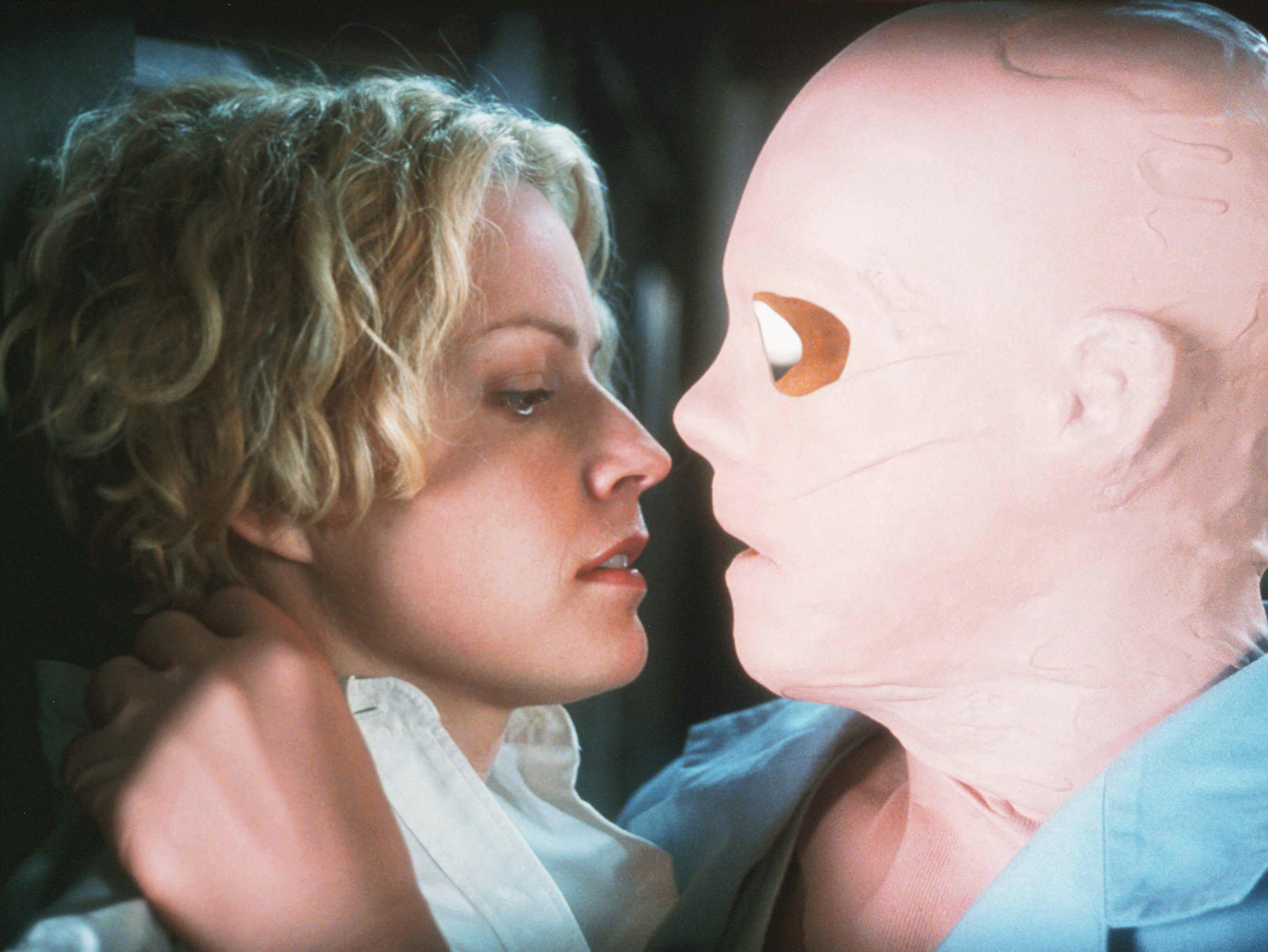
Few filmmakers have been better at filtering potent, timely themes through science fiction elements than Paul Verhoeven. Corporate greed infiltrating our ideas of law, order and society? Robocop. Military-industrial complex propaganda reshaping our role in the universe? Starship Troopers. Even Total Recall has something to say about identity, memory, and what it means when you can’t easily sift between truth and fabrication. All of these films have received ample reappraisal in recent years, turning them into masterpieces of the genre.
And if there’s any Verhoeven film that deserves that kind of treatment next, it’s Hollow Man. The 2000 film has a complicated legacy, one that balances the sobering cruelty on display in the film, the equally sobering prescience of its themes, and the swing-for-the-fences special effects. But 25 years after its release, its ideas have never hit home so effectively.
Hollow Man stars Kevin Bacon as the impeccably named scientist, Sebastian Caine. Caine, working with a team of scientists on a serum that can make living creatures invisible, is unable to escape his own ambition and vanity, which leads him to test the serum on himself. It works, but now Caine can’t render himself visible again, leading to Caine succumbing to both rage about his situation and his most despicable, power-hungry urges. Caine goes on a murder spree, but he’s eventually tricked by ex-girlfriend Linda (Elisabeth Shue) and falls to his demise down an elevator shaft.
Though certain portions of the film look dated today, it’s clear that Hollow Man was intended to be a special effects showcase. After all, its $95 million budget meant that it outspent the same year’s X-Men. And while much of the invisibility scenes replicate a kind of slasher movie feel, there’s something deeply eerie about the “mask” that Caine wears. It’s a crude facsimile of a normal person, the kind that Caine sometimes seems like he’s trying to be while truly believing himself a superior specimen of the human race on the inside. The fact that you can now see through him just means that, all along, he was hollow… man.

It’s hard not to immediately relate Sebastian Caine to the plentiful tech oligarchs or wannabe power-players on display in modern society. We wake up to stories of their attempts to seemingly displace humanity, while they speak of their work with cartoonish pride and ghoulish inevitability. And while this breed wasn’t exactly unknown in 2000 (it was the year of the dot-com bubble crash, after a rise that had been built on the backs of unhinged levels of spending and flying-blind entrepreneurship), they’re far more prominent today. Hollow Man didn’t predict 2025, but it was certainly tapping into something.
This dispiriting main character is one of the main reasons why Hollow Man can be such a difficult watch. At one point, after some time spent spying on her through the window, Caine sneaks into his neighbor’s apartment and sexually assaults her. His subsequent violent acts, including the ruthless murder of a dog and many, many people, truly makes Hollow Man the “feel-bad” movie of the summer of 2000. Verhoeven gives us little respite, as the movie totally revolves around Caine, and even the other lead character, Linda, exists mostly to try and resist his storm.

Hollow Man’s rampant bloodshed is reminiscent of HG Wells’ The Invisible Man. While famous adaptations of the story, specifically the 1933 version, attempted to offer the titular villain a stab at redemption at the end (“I meddled in things that man must leave alone…” he says, dying), the novel’s character is obsessed with terror and never really lets off the brakes. That was Roger Ebert’s main criticism of Hollow Man — what interest is there in seeing not an emotional arc or a complicated journey for Caine, but one act of disturbing mayhem after another? Its plot likely didn’t help Verhoeven’s own recollection of it. Today, the director considers it “boring.”
Hollow Man is certainly imperfect — aside from Bacon, the cast is given remarkably little to do and there are moments that are generally uncomfortable to sit through (if you don’t like assault on animals, you’ll likely tap out around three minutes in). The film is also unflinching in its portrayal of someone who seeks to reach unparalleled achievement and cause widespread misery, all for their own personal gratification. A bit of nuance may have helped flesh out the main character, as a film like Robocop is genuinely bolstered by the cyborg officer’s conflict with his own memories, even as he’s shooting bad guys in the crotch.
But Hollow Man likely wouldn’t have been improved overall; this isn’t a film about what you can earn, sympathies or otherwise. It’s about what you feel you can get away with, whether no one is watching, or no one can see you.







